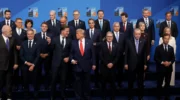A conflict within Germany’s ruling coalition has intensified over the search for funding sources to cover a multi-billion euro hole in the budget. The central question is who will bear the primary costs: wealthy citizens or recipients of social assistance.
Federal Chancellor Friedrich Merz (CDU) criticized the current model of the social welfare state, stating that it has become unsustainable for the German economy. At a CDU conference in Osnabrück, he called for stricter controls on benefit payments, arguing that the existing system allegedly deprives people of the incentive to work.
In contrast, Vice-Chancellor and Finance Minister Lars Klingbeil (SPD) is championing the idea of raising taxes for the super-rich. He is convinced that fairer taxation of large fortunes and high incomes is the key to solving the budget problems. His position has been publicly supported by several state premiers from the SPD.
Merz has clearly outlined his conditions for support: the SPD must agree to a tightening of migration policy and measures to stimulate industry. The Chancellor expressed disappointment with the government’s current results.
The left-wing opposition is sharply critical of the government’s approach. The leader of the Left Party in the Bundestag, Heidi Reichinnek, warned of an impending “era of social cruelty,” while the SPD’s youth wing has threatened resistance if the reforms amount to nothing more than cuts to social benefits.
Thus, the ruling coalition is on the brink of a serious test, the outcome of which will be a choice between two fundamentally different approaches to social and fiscal policy.









